The contagious air of optimism and excitement at many of our vitamin distributions is universal, independent of language or tradition. Mothers, with little ones in tow, frequently express their gratitude and joy during the brief moments they spend with us. Even if they don’t fully comprehend the technicalities behind our work, they know that it ultimately helps their children have healthier futures. And that knowledge is what compels them to come en masse – to travel great distances, to delay the day’s chores, to wait in line with their squirming children. It’s what makes their anticipation and renewed dreams for the future nearly tangible, conveyed through broad smiles and excited, buzzing conversations.
Not all of the mothers who cross our path express this joviality, though. They may understand the benefits of our vitamins – they wouldn’t attend distributions if they didn’t – but some appear stoic and even distant at times. They acknowledge questions from our field partners with little more than nods or one-word answers, solemnly following directions to hold their child’s mouth open for vitamin doses. It’s clear that while renewed prospects for their children’s health provide comfort, they don’t erase the residual effects of lifelong hardships. After years of labor and sacrifice, reasons to smile, laugh and dream are not always easy to come by.
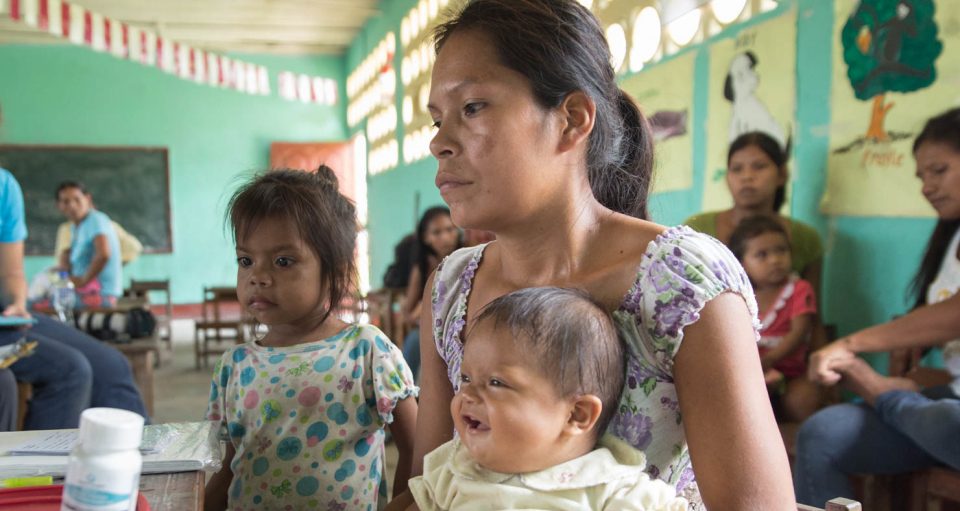
Such was the case, so it seemed, at a vitamin distribution in the riverside community of Comandancia in Peru. A small schoolhouse was the only available space, so mothers and children alike settled in the miniature furniture. As we explained the process for administering vitamin doses and the short- and long-term effects of the micronutrients, the mothers all seemed resigned, wiping the morning’s damp heat from their foreheads.
Amongst the weary visages, worn from hours in the sun and the challenges of life, one woman stood out from the crowd. Poised on the edge of her child-sized chair with a young boy by her side, she listened eagerly; when they were called up later, she was quick to ask questions and engage with the clinic’s professionals. Her name, we later learned, was Adelina.
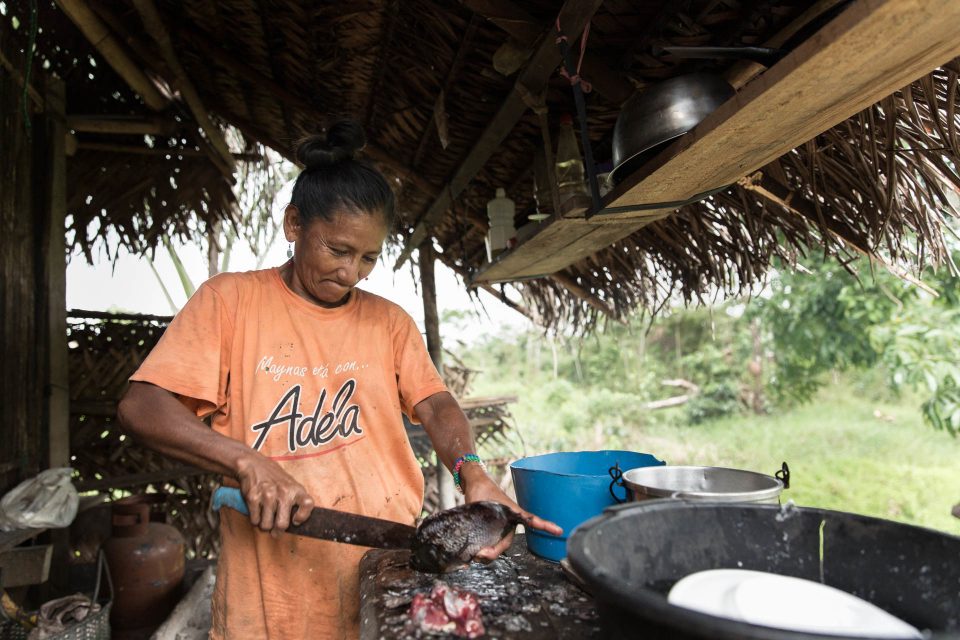
Some people speak with their words, others speak with their eyes, and others speak with their hands. Adelina spoke, emphatically, with all three. Sitting with her in the middle of the classroom, we learned that the little boy who trailed after her was her grandson – “Bilardo,” she said, gesturing to him with affection – and that she had recently moved with him into a home only a few minutes’ walk down the path. Prior to that, she lived with Bilardo and his parents a couple of doors down; overall, the 49-year-old matriarch has built a life in Comandancia over the past three decades.
“This is Bilardo’s third time getting vitamins,” Adelina shared. Her fingers, wrinkled and thin, counted off the benefits. “They’ve improved his health – he has a better appetite, better weight and plays more,” she said. Dismissively, she added that the “old powder vitamins” didn’t help him, but the vitamins he’s received from Vitamin Angels’ distributions have made a noticeable impact. “He loves them,” she said of Bilardo’s response to the vitamins. When asked if he thought they were delicious, he rewarded us with a shy nod.
As Bilardo’s loving grandmother, Adelina is dedicated to giving him a good life and setting him up for a successful and healthy future. But her determination goes beyond that of her kin. We learned that she also plays a vital role in Comandancia as its designated bocal, which is the messenger to the community. Her role requires her to relay important information from the local government to everyone in the village – a duty that is held in high esteem and appointed only to trusted, elected individuals.
“This role is very important to me, especially since the bocal before me did a bad job,” she noted. “Nobody here really knew about vitamins before I was elected.” Once confirmed, she took it upon herself to introduce vitamin distributions to the area and educate families on their importance.
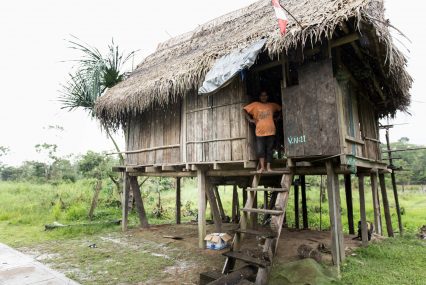
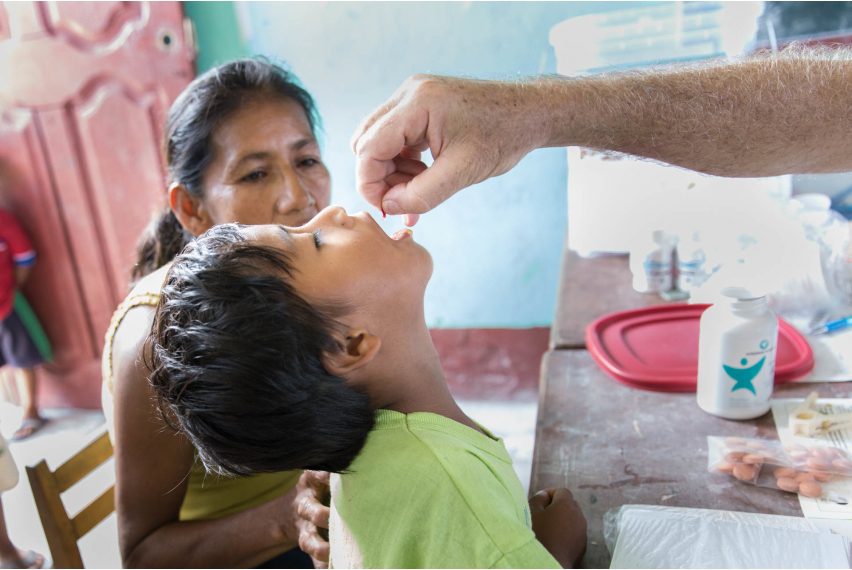
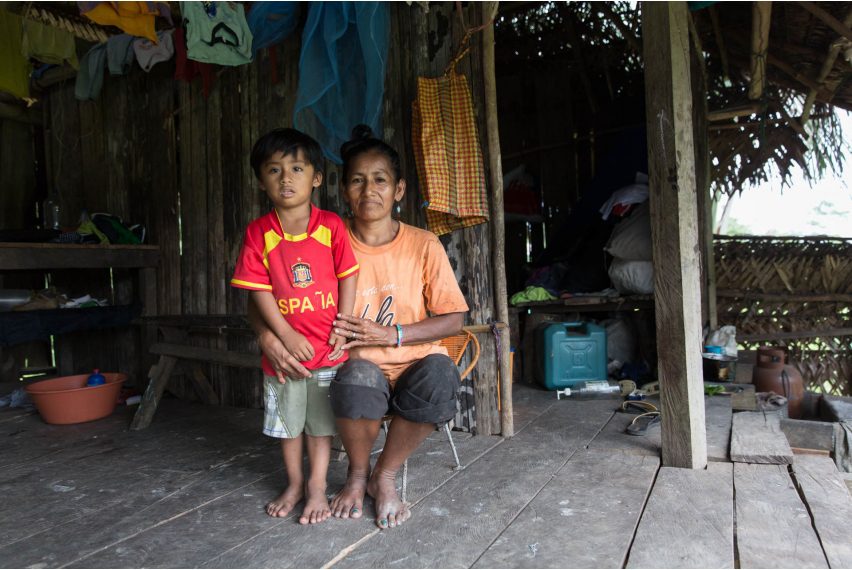
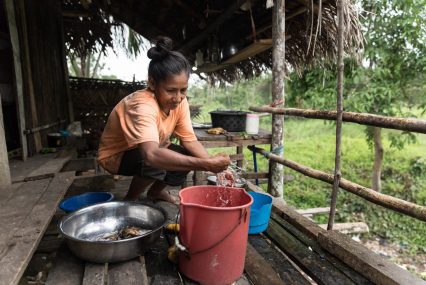
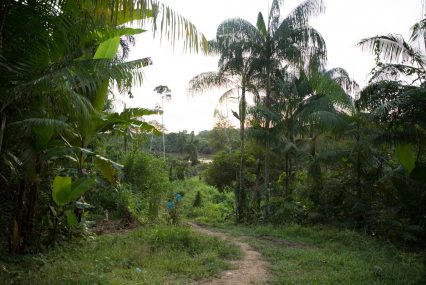
The main issues afflicting her community, Adelina asserted, are that the children lack appetites and seem generally weak; many also suffer from cold symptoms. One of the more obvious, positive effects of the vitamins is that they help undernourished children gain weight. “Parents want their children to gain weight in this community,” she said, scratching at her nail polish. “A little fat is a good sign of health.”
Adelina’s long-term goal during her tenure as bocal is to fully integrate vitamins into Comandancia. Despite her efforts so far, some parents still don’t recognize the value of taking their children to distributions; others forget to bring them more than once. Her initial learnings have affected her approach. Now, she emphasizes vitamins’ simplicity and appeal to mothers and children alike: “I tell them [mothers] that ‘these vitamins are really good for the kids; they’re really important. They smell like candy; the children will like them,’” she said.
Daily and diligent efforts, she believes, will lead to long-term and even generational changes that transcend her community. “At the next community meeting, I’ll make sure to talk about vitamin distributions to the other bocals,” she said, with the hopes that they’ll share the message with their own villages.
Her parting pledge, in some ways, sounded like an attempt to reassure us of her commitment. But there was no need for validation. To us, and anyone who bore witness to the conversation, Adelina’s steadfast resolve to sharing our message was evident.
Support leaders like Adelina.

